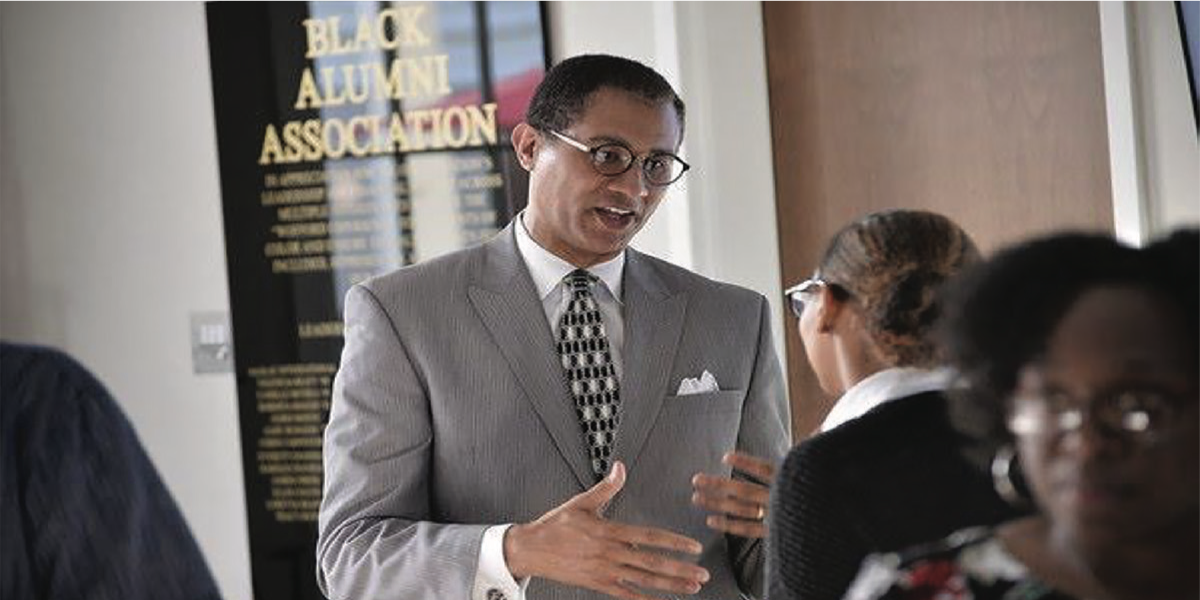Exploring the gap between Wofford and Black alumni
College graduation is a celebration of triumph, success and perseverance. It is a testament to the resilience of millions of students across the world, and a college diploma is an achievement that can never be taken away.
However, for many graduates of color, college graduation represents the end of a turbulent time in their lives. It is the end of a difficult four years filled with unique trials such as struggles to be seen and heard paired with a constant desire to be understood and represented.
At Wofford, despite the grandeur of homecoming and the college’s constant profession that Wofford is a family and a community, the @blackatwofford Instagram page has pulled down the veil covering the true feelings that Black alumni and current Black students have about the college.
Of course, not all Black alumni have left the college with bad tastes in their mouths. Jameica Hill ’88, Professor and Chair of chemistry at Wofford, said that she enjoyed her time at Wofford, but that, “being involved in a lot of activities and organizations, along with my studies, I think I was shielded from many of the negatives that other African American students experienced.”
Hill joined Delta Sigma Theta Sorority, Inc. in the fall of 1985 and was also a cheerleader during her time as a student. At the time, she belonged to one of the largest classes of African American women that Wofford had had, and the majority of them lived on the third floor of Greene Hall together.
“Many of us forged deep friendships and have remained that way for over 3 decades,” Hill said. “We travel together once a year to this day.”
In addition, the Association of African American Students (now the Association of Multicultural Students) was very active during the 1980s, as was the Gospel Choir.
Despite this, though, Hill added that inclusion in other arenas was still a concern for Black students, specifically Black women, on campus at the time. She told stories of her Panhellenic counterparts and how they enjoyed formals and functions, opportunities that simply were not available for NPHC students.
There was one place where NPHC students could have parties: the Coffee House, which Hill said “left much to be desired.”
Today, Black alumni from Hill’s years as a student and the decades that followed have the opportunity to participate in the Black Alumni Association, established just six years ago in 2014. Shortly thereafter, the Black Alumni Summit, an annual event during homecoming where Black alumni and current Black students get together to discuss the current climate at Wofford and how alumni can support current students in their endeavors, was also established. The Summit did not take place this year due to the coronavirus, but Dina Roberts, Executive Director of Engagement and Annual Giving, hopes to resume in-person programming next fall.
Roberts said that, in her experience, alumni engagement has been good as many alumni have had positive experiences on campus. However, she added that “our team has explored new program initiatives promoting social, cultural and intellectual engagement to attract alumni who may not have been involved in the activities that have traditionally brought people back to campus—think athletics or Greek Life, for example.”
Roberts: “I do not doubt that there are some black alumni who don’t return because of the experience they had at Wofford. However, I would like to think that we still have an opportunity and a responsibility to work with Black alumni to provide programming that will bring them and others back to campus.”
In addition to the fact that some Black alumni had undesirable experiences at Wofford, Hill said that another reason why they may have reservations about returning to campus may be that “many of the alumni events have little to no appeal for Black alumni.”
While Hill did clarify that some events, such as the Terrier Ball, do have such appeal, she also noted that what a lot of Black alumni desire are “well thought-out alumni events where attendees do not feel different from the rest of the alumni or as second-class citizens.”
As far as the alumni who do not return to Wofford, Hill said that she is “not sure” that it is possible to change their perception of the college given their past experiences.
“It would depend on the person,” Hill said, “how despondent they are about their undergrad experience, and many other things.
Roberts, on the other hand, believes that “time heals all wounds,” and that, in order to bridge the gap between the college and dissatisfied alumni, “we must have partners in the black alumni community willing to help us reconnect to those we have lost along the way and help us identify programming that is worthwhile.”
























